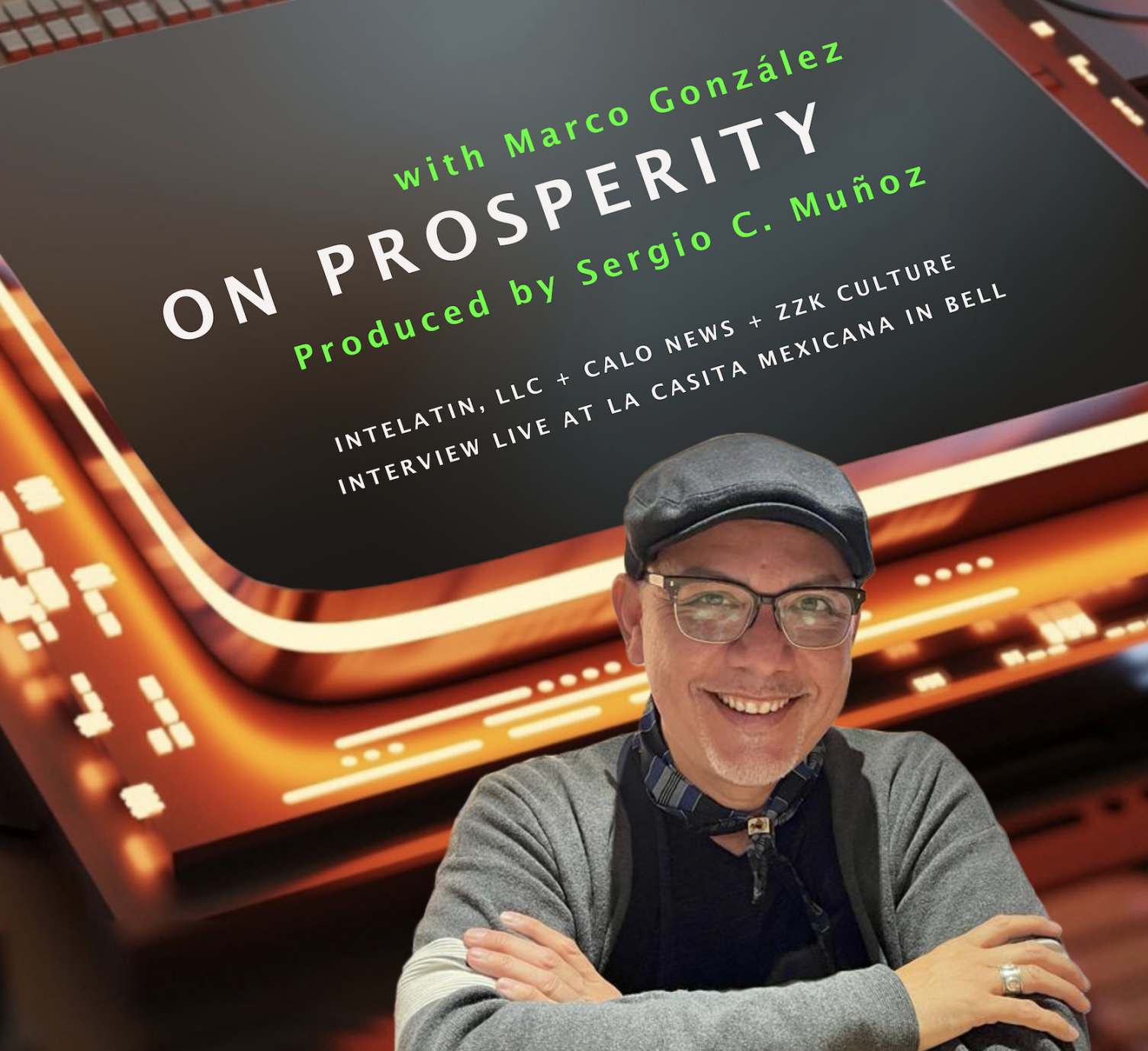
Marco González is an independent publicist working inside and outside the entertainment industry.
Marco González is the 20th of the Prosperity Series and I am now fluent enough in Other People’s Prosperity to understand that some people focus on their homes, and others on specific places, but this time, I made him focus on the most poignant part of our interview: An experience that he had living as a ten-year-old child in Mexico.
The contradictions began when he said to me that he believed he would have more opportunities as an adult in California rather than in Colima. But then it juxtaposed with the fondness by which he remembered his carefree time in Colima in comparison to the pressures he feels as an entrepreneur in L.A.
González, an independent publicist working inside and outside the entertainment industry as the owner of Mago PR, was born in the United States and split his youth in an oftentimes dramatic fashion between Los Angeles and Tecomán, Colima, Mexico. He identifies as a gay American-born Mexican.
This interview was conducted at La Casita Mexicana in Bell.
Please describe your childhood home?
I had a home in Los Angeles and then another one in Colima. The one in Tecomán, Colima brings me fond memories. My step-dad built this house with my mom from the ground up. In Mexico, you own the land and you build it brick by brick. It was a modest, small home, building it hodge-podge little by little. It was an unpaved dirt road which later got cobblestones. I arrived there in 1979. It was a three bedroom home with five of us, mom, dad and two sisters. They called me Tony at this time because of my middle name, Antonio. My father was a farmer and he grew limes, avocados and coconuts and he worked to grow and sell those fruits. In the summer, we would help him with la pisca. My mom was a hustler. She would sell milk recien ordeñada, she had a corner store, she would make camote and platanos enmielados, all types of antojitos. She would sell that in the evening to make extra money. Even still, I would classify us as low-income at this time.
Where are you economically in relation to others in Tecomán?
We did a reverse migration. We left L.A. in 1979 and it took one year for my mom to get all of our stuff in Tecomán. Half of our stuff was gone. Toys, furniture, all sorts of things. We had a stereo and roller skates and bikes. The house had a corridor that ran around the house to make a loop. We would clear the space and we created a roller derby. It was a beautiful memory that I have with my sister, Verónica. We had disco vinyls and the kids from the neighborhood would watch us roller skating around the loop. They called us Los Riquillos de Rosa. So, we didn’t feel poor and even though she struggled and hustled and sold cow milk to make ends meet, we felt so much joy to be able to roller skate around our home. At the age of ten, I felt fine.
Marco González, an independent publicist working inside and outside the entertainment industry as the owner of Mago PR, was born in the United States and split his youth in an oftentimes dramatic fashion between Los Angeles and Tecomán, Colima, Mexico. He identifies as a gay American born Mexican.
Do you have an immigration story to the United States?
My sister Lucy had a bad case of discrimination in Canoga Park and she didn’t want to stay in Los Angeles so that’s why we all went back to Mexico. Since I was born in L.A., I was coming back and forth to where I was born to visit with my sisters that lived in the U.S.A. In 1984, I came back for the Summer Olympics and my older sister Lydia told me that as an American citizen, I had no future in Mexico. She told my mom that she would be my legal guardian and I was 14 years old. She was in her late 20s at the time and she took on a lot of responsibility. The women in my family were very selfless and loving to me. My mom understood and she wanted a better life for her children, even for a woman who did not finish elementary, and so she didn’t fight it. At the time, the majority of my peers in Colima were becoming agricultural engineers and I did not want to be an engineer. Corruption was at its peak. Nepotism was something that I could not aspire to. There were no jobs in Colima because there was an over-abundance of agricultural engineers and I did not want to be a farmer. I didn’t think I had access to capital or access to education so it was easy for me to stay in L.A.
What does your home look like present-day?
I live in a cul-de-sac in North Hollywood in a nice blue collar neighborhood. They call this a midcentury modern tract house. I purchased it in 1998. Three bedrooms, two car garage. It is gray with red accents. I live with my partner and a goldendoodle named Duffy in this house. The market was perfect and I was at a crossroads. The asking price was $155K. I had just applied for grad school and the house presented itself and I had to choose one or the other. I was approved for a first time homeowner’s FHA mortgage and a Fannie Mae student loan the same year. I ended up buying the house and by the time that I was ready to graduate with a Master’s degree, I refinanced the house and paid off the Master’s at USC. I have friends that went through the same program at USC, and they only recently paid off their loans. My house has literally been a cash cow for me. I kept on learning from friends on how to use the equity in the house to help myself economically. I’m in a mortgage with a 2.4% interest rate. It makes a huge difference.
Do you think the next generation can do exactly what you did?
You have to learn the difference between an appreciating asset and a depreciating asset. Passive income. How do I make my money compound? You cannot spend your money on shit that is worthless. I invested in art and real estate. I understand the power of how these assets appreciate.
You also invested in your business, Mago PR. Who taught you to do that?
Colleagues that have been doing it longer than I have. I surround myself with smart people who are willing to mentor me.
Who is better off, ten-year-old Tony or Marco today?
Ten-year-old Tony didn’t worry about a thing. He was carefree.
What González says is inspiring to me because there is a wonderful contradiction between the life he loved in Colima as a low-income Mexican on a lime farm in relation to the success he has had in Los Angeles as a homeowner and a business owner with a Master’s degree as an American.

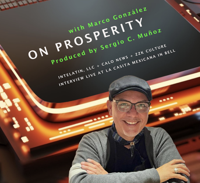

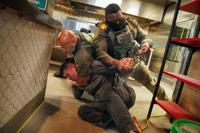

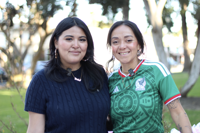

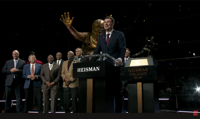

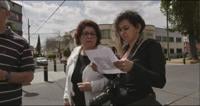
(0) comments
Welcome to the discussion.
Log In
Keep it Clean. Please avoid obscene, vulgar, lewd, racist or sexually-oriented language.
PLEASE TURN OFF YOUR CAPS LOCK.
Don't Threaten. Threats of harming another person will not be tolerated.
Be Truthful. Don't knowingly lie about anyone or anything.
Be Nice. No racism, sexism or any sort of -ism that is degrading to another person.
Be Proactive. Use the 'Report' link on each comment to let us know of abusive posts.
Share with Us. We'd love to hear eyewitness accounts, the history behind an article.